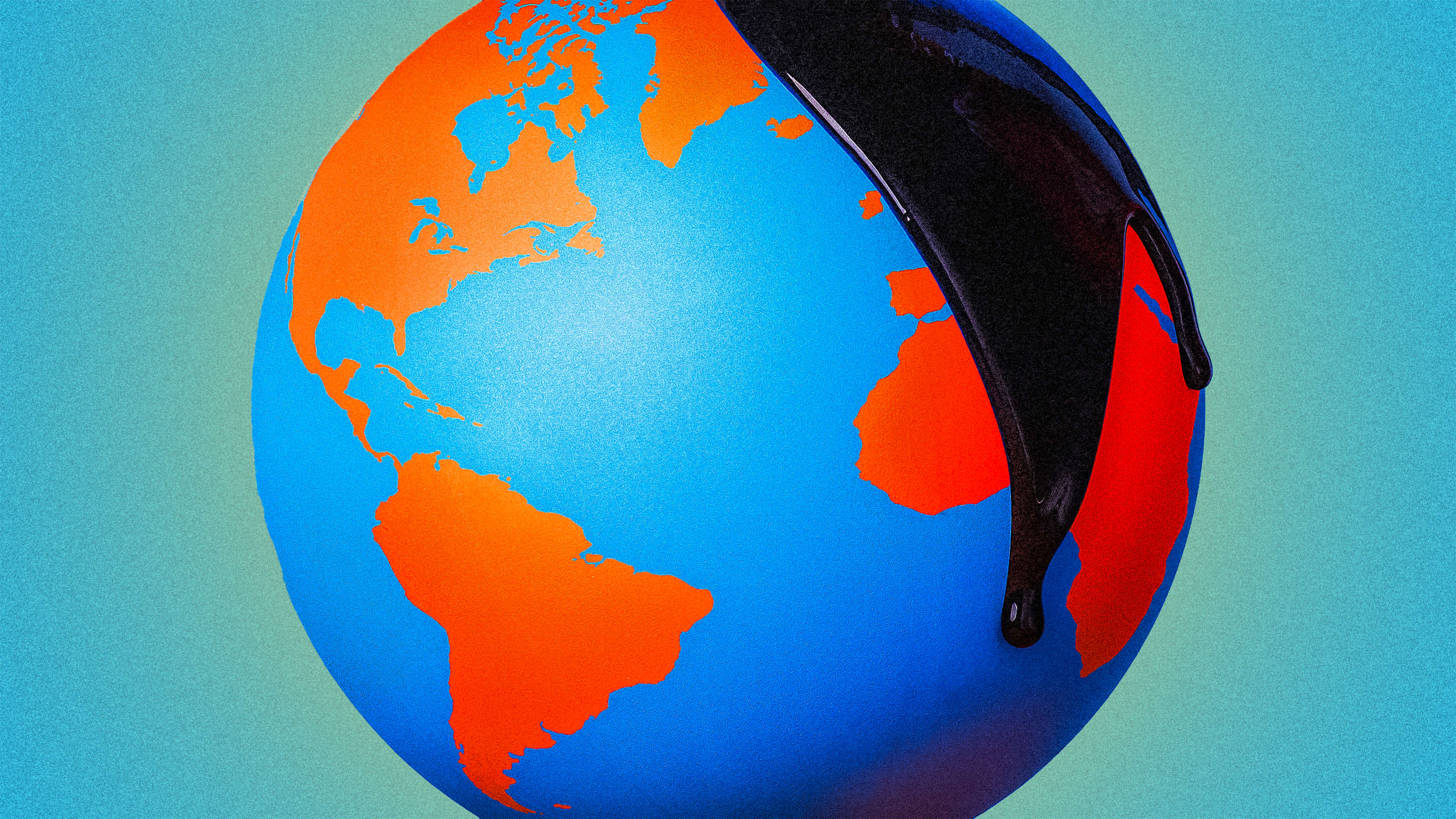When a climate disaster hits, the people who pay the biggest price often had the least to do with causing the problem. Take, for example, the devastating heat wave this spring in South Asia—made 30 times worse by climate change—followed by a cyclone that tore through refugee camps in Bangladesh and Myanmar. Myanmar’s historical emissions are a tiny fraction of the emissions from the United States.
In some cases, insurance companies help foot the bill for damages, and taxpayers also pay via disaster recovery agencies. Last year, wealthy countries finally agreed to support a “loss and damage” fund for climate impacts in lower-income nations. But some argue that fossil fuel companies, responsible for most greenhouse gas emissions, should be shouldering a large part of the burden. A new study published in the journal One Earth suggests how to calculate exactly how much they owe.
Between 2025 and 2050, based on a survey of hundreds of climate economists, the total economic damages from climate change is estimated at a staggering $99 trillion; nearly $70 trillion of that can be attributed to fossil fuel emissions. “We’re probably underestimating likely damages,” says study coauthor Richard Heede, director of the Climate Accountability Institute.
The study suggests a potential framework of evenly breaking down responsibility between fossil fuel companies, governments that were slow to act, and consumers who used products like oil and gas. (It’s arguable that fossil producers should pay more, but the framework is just a starting point.) Then it calculates how much each of the largest producers owe based on their historical emissions beginning in 1988, “when oil and gas companies had no excuse not to be aware of the harms of their product,” Heede says.
Under this approach, Saudi Aramco, which had the largest emissions, would owe $43 billion a year. Exxon would owe $18 billion annually; Shell and BP would owe slightly less, followed by others including Chevron and the coal producer Peabody Energy. Though the numbers are large, they’re smaller than most company profits. Exxon, for example, made $56 billion last year.
The paper argues that as the companies make annual payments, they have an obligation to simultaneously cut emissions in line with the International Energy Agency’s plan for the energy industry to reach net zero by 2050, including no investments in new fossil fuel projects. If companies move aggressively to make the transition faster, the authors say, their climate reparation bill could be reduced.
The study doesn’t outline exactly how a system like this would be managed. “We don’t really know how reparations can be compelled, or who should manage it, and who should decide how those funds are can be distributed and invested,” Heede says. “That’s all open for discussion. We just wanted to start here with a robust methodology and let others comment and carry the ball forward.” Whether it can ever happen, politically, is another question, though a handful of leaders—like UN Secretary-General António Guterres—have said that they think fossil fuel profits should be taxed to help pay for climate disasters.
“The fossil fuel industry is feasting on hundreds of billions of dollars in subsidies and windfall profits while household budgets shrink and our planet burns,” Guterres told the UN General Assembly last year. “I am calling on all developed economies to tax the windfall profits of fossil fuel companies. Those funds should be re-directed in two ways: to countries suffering loss and damage caused by the climate crisis; and to people struggling with rising food and energy prices.”
Recognize your brand’s excellence by applying to this year’s Brands That Matter Awards before the early-rate deadline, May 3.
